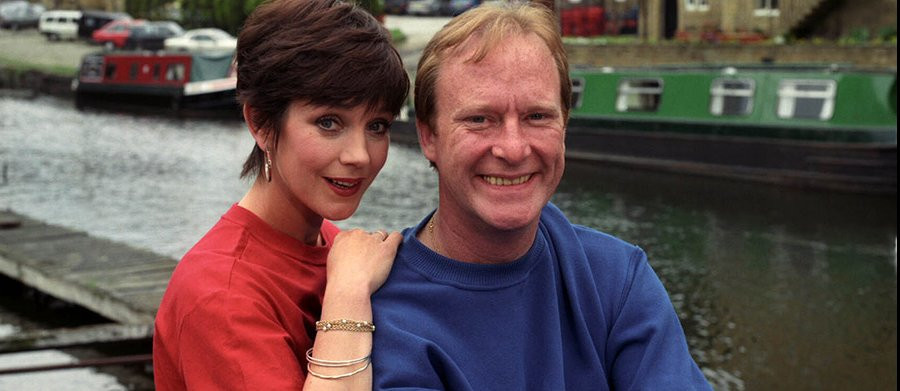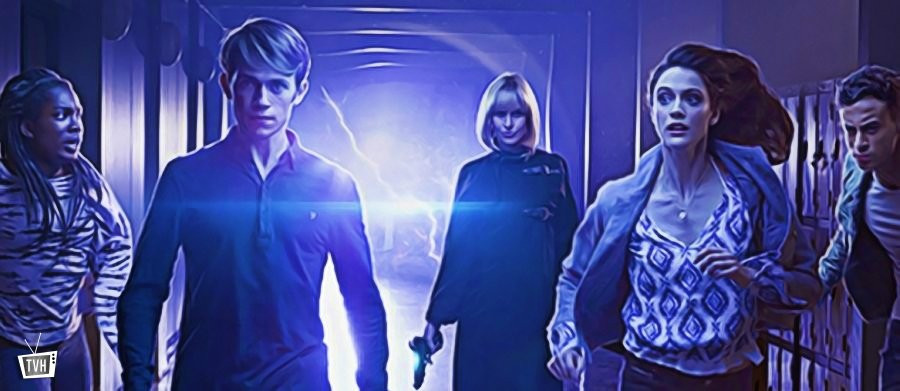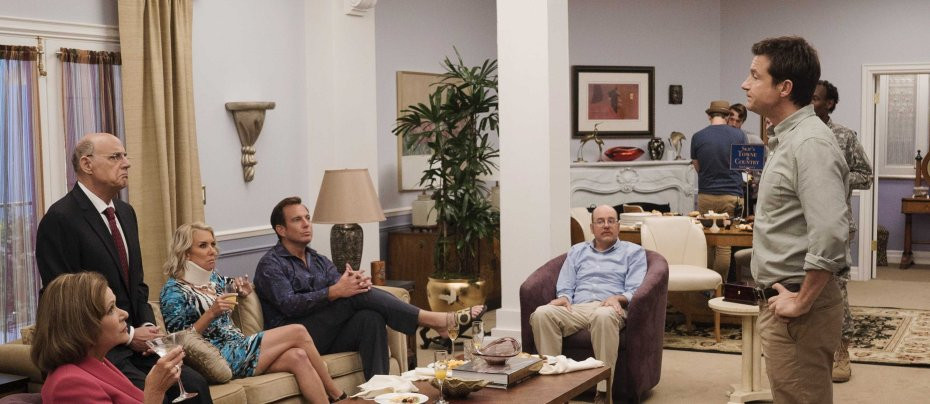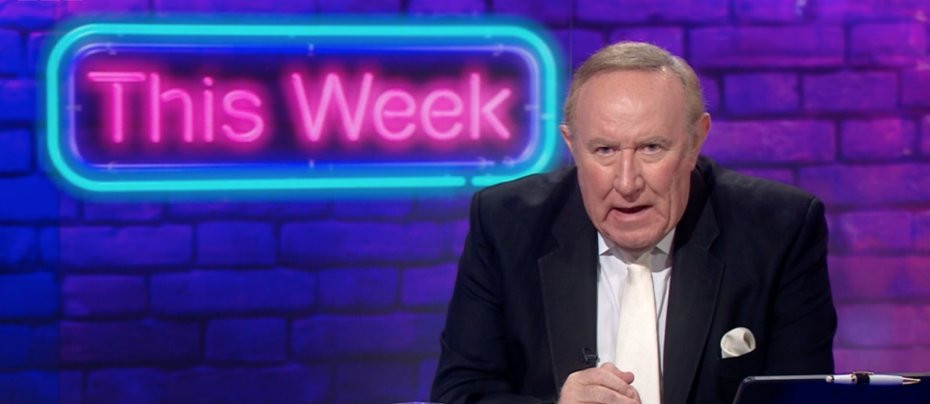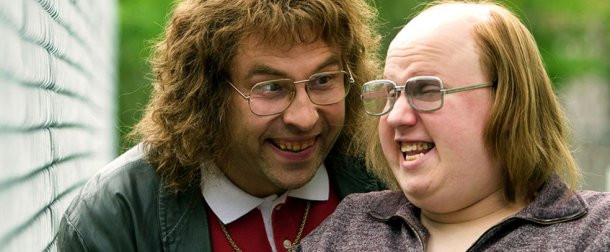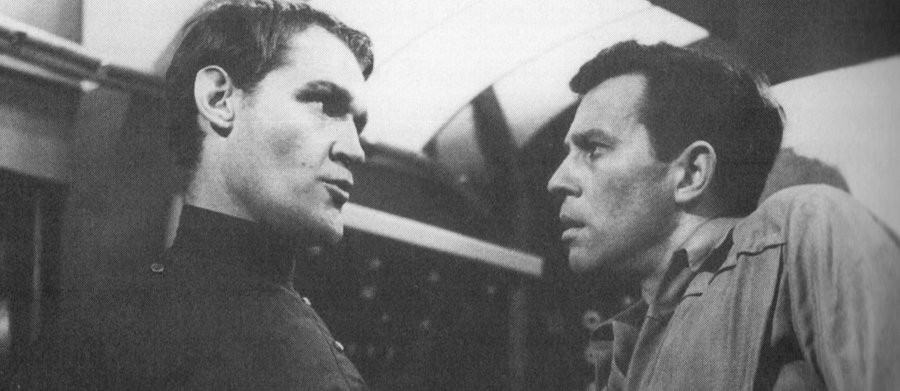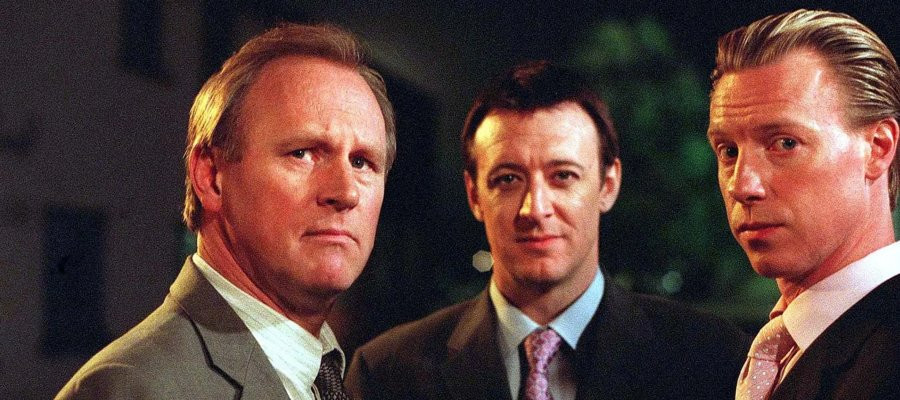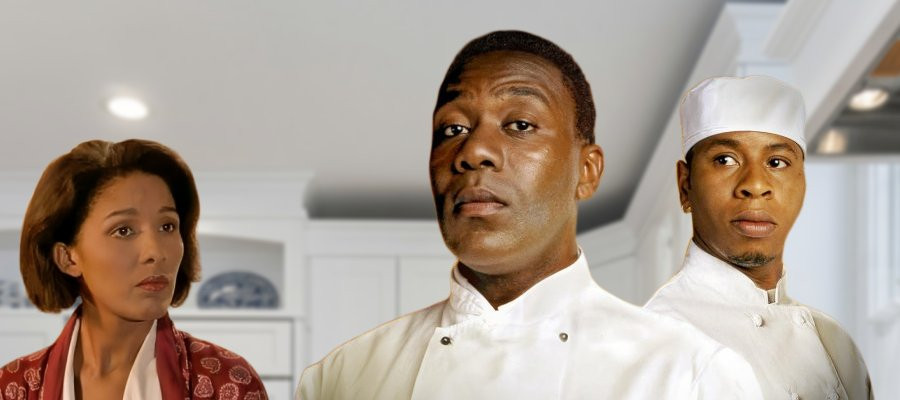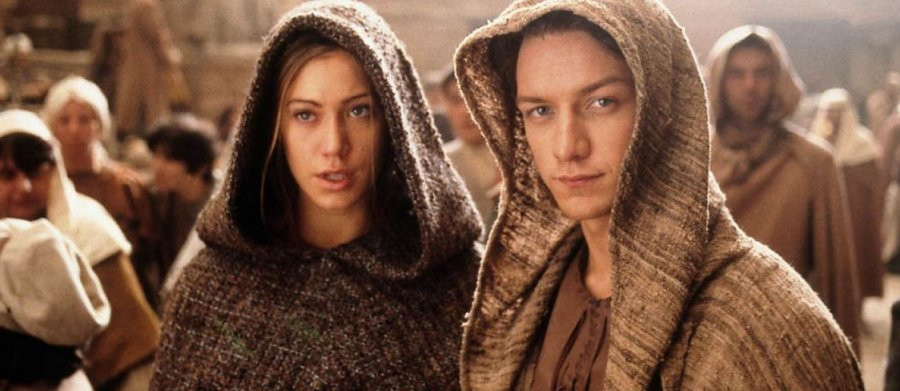
Frank Herbert's Children of Dune
2003 - United StatesIn 2000, the Sci-Fi Channel, at that time recently rebranded as 'Sci Fi,' sic, went off in a daring new direction when it showed Frank Herbert's Dune, an expensive new "miniseries" it had commissioned itself. The gamble paid off in the form of record-breaking ratings, so more "miniseries" followed. It was all but inevitable that a sequel to Dune was among them and perhaps the only surprise is that it took over two years for it to appear.
There was no shortage of source material. Frank Herbert's original novel, Dune, had been only the first of a cycle of six set in the same imaginary future continuing the story of the characters and their descendants in various forms. Yet the problems of adapting the original increased exponentially in the sequels. The first Dune has a simple, almost cliched basic storyline, its real strength being in its wealth of ideas, especially in the detail of its imagined world.
Ideas are not easy to adapt into drama and the rich texture of the background can overwhelm the narrative in the finite screen time of a film or series. If adaptation was difficult enough in the case of the original Dune, which at least had a clear narrative thread, it became even harder with the sequel novels, where the plot became more complex and the focus was even more on increasingly complicated ideas.
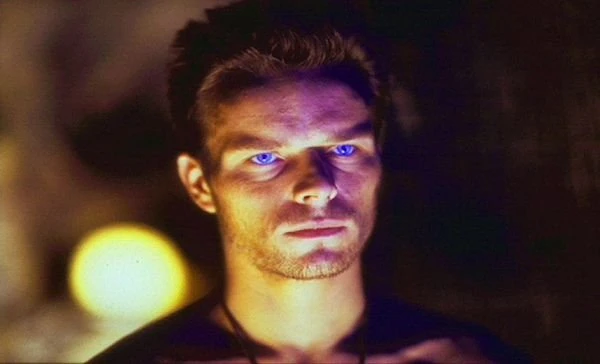
John Harrison, the writer-director of Frank Herbert's Dune, was again entrusted with the script but Greg Yaitanes took over the director's chair. Harrison seems to have made the defensible assumption that anyone likely to watch the sequel is likely to have watched the original: whether or not this was necessarily the case, it enabled him to cut down on the exposition, a good decision from a purely dramatic point of view.
He also seems to have proceeded on the assumption that the viewer has at least some familiarity with the books. Given the target demographic of the Sci-Fi Channel, this is not an unreasonable assumption, but those viewers of whom it was not true must have had a difficult time following the plot.
It is not just a matter of the casual insertion of strange words from the detailed vocabulary of the imaginary Universe found in the books. The actions of the main characters themselves become incomprehensible unless the viewer is aware of motivations which are never properly explained onscreen.
Above all, the conduct of the initial hero, Paul Atreides-Muad'Dib, is inexplicable unless one is aware of the nature of his powers in the book which is never discussed in the series, because such a discussion would be complicated and would bog everything down. So it is not made really clear that Paul's prescience has cursed him with the knowledge that humanity is doomed to destroy itself - unless a rather narrow series of choices, known as the "Golden Path," is followed. This is why he is prepared to tolerate a false religion and a religious war that begin in his name against his desires - he knows that in the very long term every other alternative will prove to be worse.
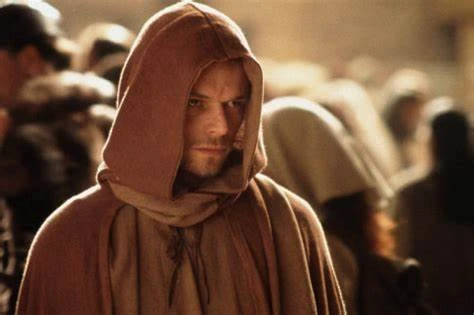
As a result, he becomes a strangely passive protagonist. He abdicates responsibility for horrible things done in his name and wanders off into the desert. Only at the end of the first episode, in a sequence obviously based on the "settling of all family business" in The Godfather, is he briefly the decisive leader he was in the original "miniseries." In the second and third episodes, the focus passes to his son, Leto II.
This is a reflection of the structure of the "miniseries": the first episode is based on 'Dune Messiah,' the second novel in Herbert's cycle, while the other two are basically the third novel, the actual 'Children of Dune.' While this is a logical division, the transition is so abrupt that it can feel like watching two separate shows. The first episode is therefore both a coda to 'Dune' and a prologue to 'Children of Dune' proper, which leaps ahead several years and introduces completely new protagonists. The effect is very disorienting. We have invested in one person and time, and must now invest in others.
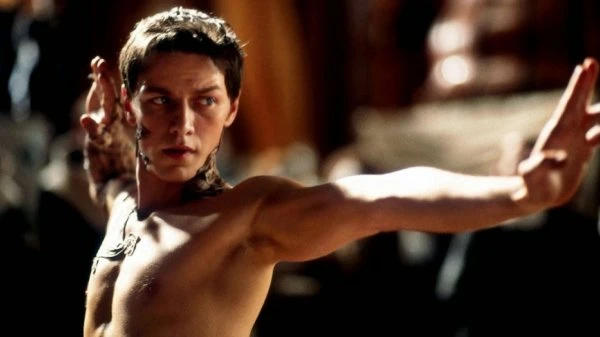
The transition is eased by a star-making performance from the young James McAvoy as Leto II. In his first major leading role, he seems as self confident as his character, a prescient Prince who knows he is born to rule. The only false note is that he seems to take off his shirt far too frequently for someone raised in a desert. Just think of the sunburn.
Elsewhere, there is some continuity with Frank Herbert's Dune in the casting. Alec Newman returns as Paul and seems to have grown in the role. Czech actress Barbora Kodetova is poignant as his concubine Chani without losing the strength she showed in the previous series that convinced the viewer she was also a tough desert-born woman. P H Moriarty is back as everyone's favourite interstellar Cockney hard man, Gurney Halleck.

The most welcome return is Ian McNeice. The fact that his Baron Harkonnen was killed at the end of Dune was no obstacle. Readers of the books will be aware that dead characters frequently come back in various forms. The character of Duncan Idaho, Paul's childhood friend, also rises from the metaphorical grave in Frank Herbert's Children of Dune - or, more accurately, is remade as a sort of clone from genetic material lifted from his corpse - but is played by a different actor, Edward Atterton.
McNeice, of course, is irreplaceable. Again, he brings a much needed sense of fun to the sombre proceedings. This time he is allowed an almost seductive charm, and, although we know he is up to no good, we can also understand why a vulnerable character wants the comfort he offers.
At the same time, the opportunity was taken to upgrade the cast a little. Saskia Reeves was apparently unavailable for family reasons, so Alice Krige took over the role of Lady Jessica. Krige knows how to do attractive older woman, and at one point the viewer might think she is seducing her own grand-daughter's future fiancé. Lady Jessica is, after all, a member of a sort of religious order who happen to be good at sex and violence - sort of anti-nuns. Happily, things stay on the right side of respectability, but one is left with the impression that she could if she wanted.
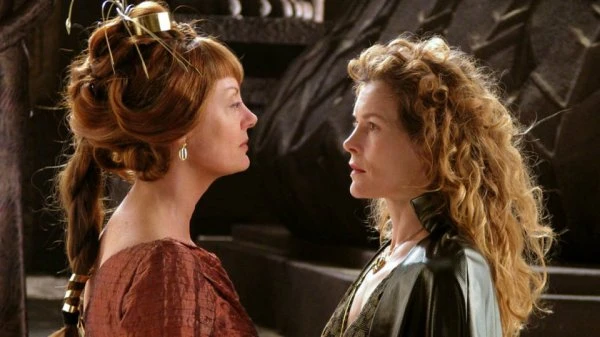
Things are also kept relatively decent in respect of Leto's unusually close relationship with his twin sister - it is even weirder in the book. Jessica Brooks does well in the role, even if it is, by Dune standards, rather underwritten. Herbert's strong women are, however, still present in strength. Susan Sarandon is on fine form as an arrogant Princess of the deposed Imperial House who wants her Family's Empire back but learns too late that a sense of entitlement is no substitute for intelligence. Daniela Amavia does well to evoke sympathy for Paul's sister, the Regent Alia: although she makes bad decisions, she is not in herself a bad person - she is rather a tragic figure, and, like all tragic figures, driven by forces beyond her control.
As she was in Frank Herbert's Dune, Princess Irulan becomes both more likeable and more important than she is in the novels. Lacking children of her own, she becomes a substitute mother to her stepchildren in the absence of their mother and grandmother. As played, once again, by Julie Cox, she exhibits a genuine family affection that is otherwise rare in either of the two "miniseries," or indeed the books.
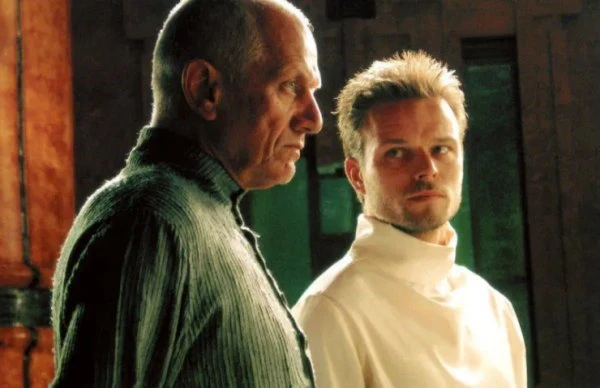
The role of Stilgar, Paul's trusted counsellor and enforcer, is taken over by Steven Berkoff, whose mere presence is enough to give it both authority and an edge of danger.
It therefore has to be acknowledged that, overall, the acting is better in the sequel than in the original. By way of balance, it must also be said that the visuals are not as impressive in the sequel. There are some good looking set pieces, especially the "family gathering" scenes, but elsewhere the production misses the lush photography of Vittorio Storaro. The desert scenes are relatively bland and the pretty use of colour motifs seems to have been largely abandoned.
Like its predecessor, Frank Herbert's Children of Dune won the Emmy for visual effects, and, like its predecessor, it now suffers from this aspect of the production not having fared well with the passing of time. The Laza Tigers have lost any menace they might have had - if they ever did: they actually seem rather cute and one might find one's sympathies on the wrong side when they take on the Atreides twins. By contrast, Princess Susan Sarandon's real life pet raven and owl are absolute stars who steal every scene in which they appear.

Whatever its visual shortcomings by today's standards, Frank Herbert's Children of Dune was another big ratings success at the time. It is therefore once again a surprise that it was not followed up immediately. Of course, high ratings do not necessarily mean commercial success - it was an expensive production, as can be seen clearly from what is on the screen. More importantly, the problems of adaptation only increase as the books go on. Although it is not made clear in the "miniseries," Leto is in fact turning into a "sandworm" at the end of Children of Dune, and there is a considerable time gap between that and the events of the next novel in the cycle. A straight continuation, as there was between 'Dune' and 'Dune Messiah,' and then between 'Dune Messiah' and 'Children of Dune,' is therefore not really a viable commercial or dramatic proposition as things stand. Yet never is a long time, so someone might try one day.
Review by John Winterson Richards
John Winterson Richards is the author of the 'Xenophobe's Guide to the Welsh' and the 'Bluffer's Guide to Small Business,' both of which have been reprinted more than twenty times in English and translated into several other languages. He was editor of the latest Bluffer's Guide to Management and, as a freelance writer, has had over 500 commissioned articles published.
He is also the author of ‘How to Build Your Own Pyramid: A Practical Guide to Organisational Structures' and co-author of 'The Context of Christ: the History and Politics of Rome and Judea, 100 BC - 33 AD,' as well as the author of several novels under the name Charles Cromwell, all of which can be downloaded from Amazon. John has also written over 100 reviews for Television Heaven.
John's Website can be found here: John Winterson Richards
Books by John Winterson Richards:
Seen this show? How do you rate it?
Seen this show? How do you rate it?
Published on February 11th, 2021. Written by John Winterson Richards for Television Heaven.



